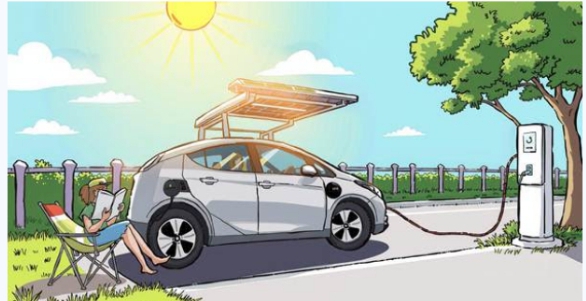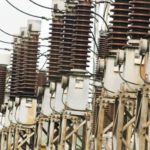The blame game over the electricity shortage across the country continued last week when government accused Electricity Distribution Companies (Discos) of low investment in their networks. Minister of State for Power, Works and Housing Mustapha Shehuri made the accusation in Uyo, when he voiced out his dissatisfaction over the inability of Discos to distribute available power to consumers.
Shehuri said, “Generation capacity has improved; transmission has improved; but the distribution companies are not taking power from the transmission company.” The minister lamented that the attitude of Discos was frustrating the essence of power privatisation because Discos did not procure transformers and other facilities to strengthen the network. Shehuri added, “They [Discos] are expected to enumerate and metre all their consumers.
Government is still intervening in the distribution system and that is why we initiated the Eligible Customers Policy to allow consumers take power directly from TCN.”
To amplify the minister’s position, another power sector agency, Transmission Company of Nigeria (TCN), through its Managing Director Usman Mohammed, accused Discos of not investing in their networks, thereby making the billions of naira government invested in power transmission assets across the country to be of no effect. He said government had invested $1.63bn in the sector under the Transmission Expansion Rehabilitation Programme, making it possible for TCN to evacuate as much as 8,100mw of power generated by Gencos.
This latest confusion and blame games in the sector buttress the widely held belief, which we share, that the power sector privatisation, though inevitable, was not well thought out before it was implemented. There is no doubt that those who bought the distribution companies lacked the capital and technical capacity needed to invest in and run them profitably.
While the Federal Government has been investing in transmission infrastructure, it has become clear that Discos have not been able to raise enough funds to provide transformers and metres across their areas of jurisdiction. Their desperate measure of giving consumers ‘estimated bills’ has led to a loud outcry from one part of the country to another, such that the estimated billing strategy of generating undeserved revenue is no longer sustainable.
The privatisation model being implemented was taken from New Delhi, in India, but experts have lamented that the model is failing because other components of the approach have not been applied. For instance, in New Delhi when the sector was privatised and handed over to distribution companies, electricity tariff was jerked up astronomically. But government subsidized it to a certain percentage in order to give consumers a breathing space while Discos reinvested what they generated from consumers and government subsidy in their networks.
In Nigeria too, government did roll out a three-year plan for the gradual withdrawal of subsidy in electricity tariffs but it is far from clear whether this system has worked.
As things stand, Discos are the weak link in Nigeria’s power supply chain. While TCN’s investment problems have been substantially ameliorated and the Gencos have also succeeded in improving their game, the Discos are far from addressing theirs. These include everything from low investment in transformers and meters to under recovery from customers. The later problem is aggravated by the Nigerian phenomenon of many customers not paying their bills. As a result, Discos often refuse to evacuate the power generated by Gencos on the grounds that they cannot sell it and recover their money.
Unless the problem of the Discos is addressed, improvement in power generation and transmission will never trickle down to the consumer and result in improved power supply to homes, offices, shops and factories. The crux of the matter is that Discos do not have the capital to invest in transformers and metres so they definitely need help. While Minister Shehuri’s indignation was understandable, the problem cannot be solved through indignation and threats. We urge government to bring together experts in the sector to take a holistic look at power sector privatisation. It had too many weak spots.
Source: Daily Trust








Hi there, I enjoy reading aall oof your post. I wznted to write a littl commentt tto supporrt
you.
I’m extrenely inspired together withh your writinmg abilities ass smartly as witth thee layout oon yoyr blog.
Is this a paid tokpic orr diid you customiz itt yourself?
Anywway stay upp tthe nice quality writing,
it’srare too look a great webloog like this one today..
The Anavar Cycle: Unlocking Its Potential
# Unveiling Potential: The Anavar Cycle Explained
The anavar cycle is a popular topic among bodybuilders and fitness enthusiasts seeking to enhance their physical performance and muscle growth.
this steroid, also known as oxandrolone, has
gained recognition for its ability to promote lean muscle mass, strength, and overall athletic potential.
in this article, we delve into the ins and outs of the anavar cycle,
its benefits, proper dosage, and considerations for both men and women.
## Benefits of Anavar Cycle
the anavar cycle is celebrated for its ability to induce significant
muscle growth, particularly in a short period
of time. it works by stimulating muscle protein synthesis, which can help individuals achieve
larger muscles and improved strength. additionally, anavar is noted for its
capacity to enhance mental clarity and focus, making it a favorite among athletes
looking to optimize performance.
it’s also beneficial for fat loss, especially when combined with a calorie-controlled diet.
for women, anavar is often used to maintain muscle mass during cutting phases while preserving skin health and elasticity.
## Proper Dosage for Anavar Cycle
the dosage of anavar can vary depending on the individual’s goals,
experience, and tolerance. typically, men may opt for a dose of
25-50mg per day, while women often start with 10-20mg to minimize side
effects. cycles usually range from 4 to 6 weeks, with some opting for up
to 8 weeks for more pronounced results.
it’s essential to follow these guidelines to maximize benefits while minimizing the risk of adverse effects.
always consult with a healthcare professional or experienced bodybuilder before starting the anavar cycle.
## Anavar Cycle for Men
for men, the anavar cycle is often integrated into bulking phases to rapidly increase
muscle size and strength. it’s particularly effective
during periods of hyperplasia, where muscles are growing in size and number.
with regular training and adequate nutrition, the
results can be impressive, with many reporting
notable increases in lean mass within a few weeks.
## Anavar Cycle for Women
for women, anavar is commonly used to maintain muscle density
during cutting phases while enhancing overall athletic performance.
it’s well-regarded for its ability to improve strength without the
harsh side effects associated with other steroids. however, dosage must be carefully controlled to
avoid potential androgization, which can occur when doses are too high or durations are extended
beyond recommended ranges.
## Anavar Cycle With Other Steroids
the anavar cycle can be stacked with other steroids to create synergistic effects.
for example, combining it with testosterone enanthate can lead to significant muscle growth, while pairing it with boldenone can enhance vascularity and fullness.
experienced users often experiment with different combinations to tailor their cycles
to specific goals, such as bulking, cutting, or performance enhancement.
## Post Cycle Therapy After Anavar Cycle
after completing an anavar cycle, it’s crucial to undergo post-cycle therapy (pct) to restore the body’s
natural hormone production and avoid hormonal imbalances.
this typically involves taking supplements like clomiphene citrate or nolvadex to stimulate estrogen production and support
liver function. pct should also include regular blood work to
monitor hormone levels and ensure recovery.
## Real Anavar Prices and Brands Comparison
the cost of anavar can vary widely based on the brand, dosage,
and supplier. in canada, high-quality anavar can range
from $100 to $300 per 100mg vial, depending on the source.
it’s important to purchase from reputable suppliers with
a proven track record of quality and security. some popular brands
include evolutions, sciroxx, and bioniche.
## Key Takeaways
– **anavar is a powerful steroid with significant muscle-building potential.**
– **proper dosage and cycle length are critical to safety and effectiveness.**
– **men and women may use anavar for different goals
but must adhere to recommended dosages.**
– **combining anavar with other steroids can enhance results,
but caution is necessary.**
– **post-cycle therapy is essential to restore hormonal balance after the
anavar cycle.**
– **always prioritize quality and legality when purchasing anavar or any steroid.**
## Wrap-Up
the anavar cycle is a highly effective tool for individuals looking to unlock
their athletic potential. with careful planning, proper dosage,
and adherence to pct protocols, it can yield impressive results while minimizing risks.
that said, it’s important to approach the use of steroids with caution, prioritizing health, safety, and legal compliance above all else.
what are your thoughts on the anavar cycle? have you experienced its benefits
firsthand? let us know in the comments below!
stay in touch for more insights into the world of
bodybuilding and performance enhancement.
—
Look into my site Are Steroids Worth It
Their online chat support is super helpful.
lisinopril 90 pills cost
They are always proactive about refills and reminders.
They maintain a high standard of hygiene and cleanliness.
can i get generic cytotec for sale
They’re globally connected, ensuring the best patient care.
Been a loyal customer for years and they’ve never let me down.
how to buy generic cytotec for sale
An excellent choice for all pharmaceutical needs.
They never compromise on quality.
pill gabapentin 800
The gold standard for international pharmaceutical services.
Providing global access to life-saving medications.
phenibut vs gabapentin
Medscape Drugs & Diseases.
70918248
References:
steroid dealer (Colin)
70918248
References:
Symptoms Of Steroids; https://I10Audio.Com,